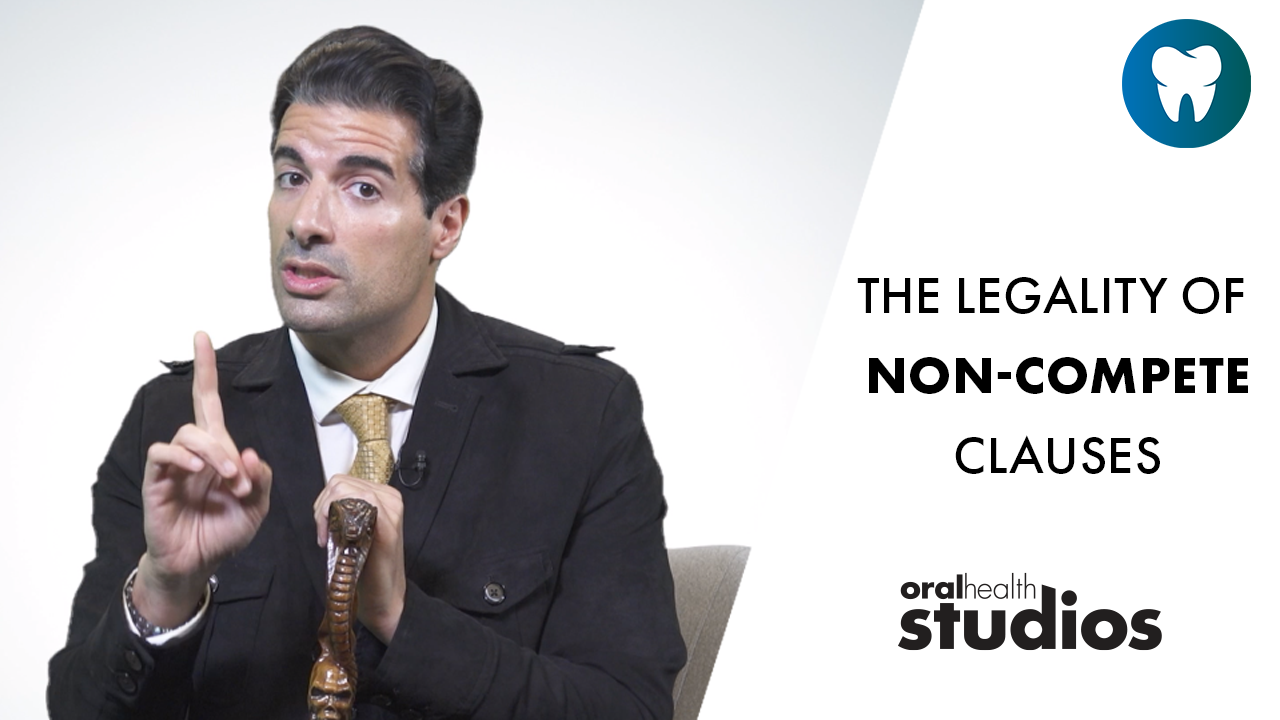Assuming we all are somewhat familiar with the process of diamond formation, the first question that comes to mind is “what the heck does this have to do with dentistry and the business of dentistry?” As you read further, you’ll see the significance of my comparison.
Diamond formation requires millions if not billions of years under the right circumstances. Your financial independence also requires time but it doesn’t have to take 30, 40 or 50 years. You can do it in 10 years and I’m certainly not the first dentist to say this. Well if I am right then why do so many of our colleagues struggle to achieve what should be a universal and attainable goal — financial independence?
We all want those diamonds but the fact is, without some pressure forcing you to excel either in your clinical skills, leadership abilities, business management, confrontational tolerance, investments, or any other aspect of dentistry or the business of dentistry and wealth creation, those diamonds might easily evade you. There’s an old English Proverb that says, “Everyone must row with the oars he has.” Sometimes we have to compensate for less than ideal oars. Remember that your oars are only one of the tools that help you get from point A to point B. I believe that someone that has focus, drive, determination and puts pressure on him/her self can paddle with their hands and still achieve their goals much sooner.
Most things in life truly are very simple — at least that is the way I feel. In my mind, complexity is unnecessary in business. Maybe this is because my simple mind finds complexity confusing. Maybe this is because I’ve had to compensate for sub-standard oars. Whatever the case, I’m certain that each and every practicing dentist out there can do what I’ve done and more.
1. Put pressure on yourself by setting goals. Write them down, commit to achieve them and tell a spouse, advisor, or trusted colleague what they are. Don’t be afraid to inflate those goals. Why do this? We do this because this is where the pressure comes in once again. You won’t want to disappoint yourself and you most certainly won’t want to disappoint a confidant. It also doesn’t make sense to set easily achievable goals — raise the bar a bit.
2. Put pressure on yourself to be more productive. I’ve said time and time again that success is simple — it’s just not easy. If you think that you’re going to work three or threeand- a-half days per week, early in your career and be able to accumulate a lot of wealth then you’re in for an unfortunate surprise. Now I know there are dentists that have done this and you may be able to point to several prominent examples but what percentage of all dentists would they represent? What I’m suggesting would work for each and every dentist out there who is in private practice. There are seven days in a week. When you have debt to repay (school debt, practice debt, or personal debt) and there is the availability of work, I don’t think that four and a half or five days of work early on in your career is unreasonable. I hear dentists say that they don’t want to get “burntout.” Try being in practice for 25 years, with lots of debt, a lifestyle that requires a great deal of capital and no end in site — that’s “burnt-out.” This is something we see on a much too frequent basis. Just as there are seven days-aweek there are 24 hours in a day. Set a goal to work chair side at least eight hours a day early in your career. The hour-and-a-half lunch and the six-hour days, three days-aweek are for later in your career.
Set hourly production goals for yourself and track them. Let your staff know what they are and your staff will book your schedule to production. In order to increase your production, you may have to allot less time per procedure and or increase your level of competence in certain procedures (through continuing education and repetition). Remember that what gets measured, gets done! C. Northcote Parkinson wrote, “work expands so as to fill the time available for it’s completion.” Think about this — I mean really think about this. Omer Reed is familiar to most of us Dentists. He has been speaking about his “90 second crown prep” for years. This gentleman has never done shabby work by the way. How long do you book for a single crown appointment? How long for an MO composite? Put a little pressure on yourself, shorten your appointment time and see what happens.
3. Put pressure on yourself to present comprehensive dentistry to all your patients. The thought of them saying no can create a certain amount of stress and anxiety. However, if you spent a lot of time and money acquiring the needed skills and your recommended treatment plan is what you would do for your own family member then it would be hypocritical not to offer this to your patient, no matter how uncomfortable it might make you feel. Remember — no pressure…
Now I want to be clear that we all don’t have to do full mouth rehab, implants, wisdom teeth, or cosmetic dentistry to make a lot of money. In fact some of the most financially successful dentists I know are very productive and extremely profitable and they perform basic restorative work, single unit crowns and the odd denture. They refer the rest of the stuff out or bring someone in to do it and they maximize their hourly production and minimize their expenses. They take on less long term responsibility (we’re married to our comprehensive dentistry) and have less stress.
There are many ways to slice a pie but in the end, getting to savor the sweet taste, is what is important. Regardless of your mind set or the type of general dentist you want to be, you can achieve your goals — you just have to define these goals.
4. Put pressure on yourself to commit to pay off debt sooner. Let your accountant define good debt and bad debt but make it your goal to relieve yourself of this burden as soon as possible.
5. Put pressure on yourself to set aside and invest a set amount of money each and every month. Use a reputable financial planner and/or investment counselor. The sooner you can accumulate significant savings, the sooner you can deal with high net worth firms who will charge you a lower percentage to manage your money.
Please, please, please do not invest in any get rich quick schemes on anything that you do not fully understand. If a relative, friend or a colleague approaches you about a great investment, politely decline. This isn’t easy but it will save you a great deal of grief. We are very trusting and we are continually targeted, so resist the temptation. Deal only with well known national firms. When you try to hit the ball out of the park you run the risk of being struck out. Deal with a good firm and you’ll get to home base safely and sooner than you might think.
6. Put pressure on yourself to save money and lower your business expenses. Learn to say no to certain relationships. It is hard to say no to a salesperson that is asking you to make a substantial purchase. It is even harder when you are made to feel guilty that you are not providing your patients with “the latest and greatest in quality care.” It’s even harder when you feel cheap but again remember your goals. Sometimes a Ferrari isn’t the best way to transport your family around no matter how outstanding a vehicle it is. So resist temptation, give yourself a cooling off period prior to committing to a big purchase and fight the discomfort that may be present when you say No!
When the opportunity is presented and making a purchase or upgrade is in you and your practices’ best interest then make sure you are getting the best possible price and terms. There is nothing embarrassing about frugality when it leads to you being more generous with your time and money.
Sometimes we become content with certain relationships in our business life. Have you ever called another bank to see if you can get a better rate or better terms? Why not? Would you rather pay more money to the current bank you are dealing with or is it just easier to kee
p the status quo? Are you worried about offending the manager? We sometimes erroneously believe because we have been dealing with a company or salesperson for a long time that they are giving us favorable pricing and preferential treatment. How do you know if you have nothing to compare to? So step out of your comfort zone and look at each and every business relationship you have where you pay for a product or service that is provided to you. Get another quote. I think you’ll be surprised at how profitable a phone call can be.
7. Put pressure on your team. Ask your patients for referrals and ensure that your staff is doing the same. This may feel a bit awkward but if you truly believe you are a skilled dentist capable of offering excellent dentistry in a caring environment then why shouldn’t more people benefit by visiting you? Make your staff and yourself accountable in all aspects of your business.
Be firm and selective when you hire staff and let go of staff members that have continually shown they are not working for the betterment of the whole team. It’s uncomfortable to discipline staff or give them direction or fire them but remember your goals. This does not mean that you can’t be nice, in fact, you should be nice and pleasant but you also have to be firm.
So if you’re not happy with the status quo then put a little pressure on yourself. There is nothing wrong with a healthy dose of discontent when it’s the catalyst for positive change and profitable results. You can waste a lot of time looking for that pot of gold. Why not just make your own pot and fill it?
John Marinovich BSc., DDS, graduated from the University of Western Ontario School of Dentistry in 1990. His ability to achieve an annual net income in excess of $1,000,000 led to his financial independence. In 2004 he founded Marinovich Group and trademarked his system of reducing costs in order to yield high profits without increasing the workload on the dentist. They can be reached at 1-866-377-5300 or www.marinovichgroup.com.









